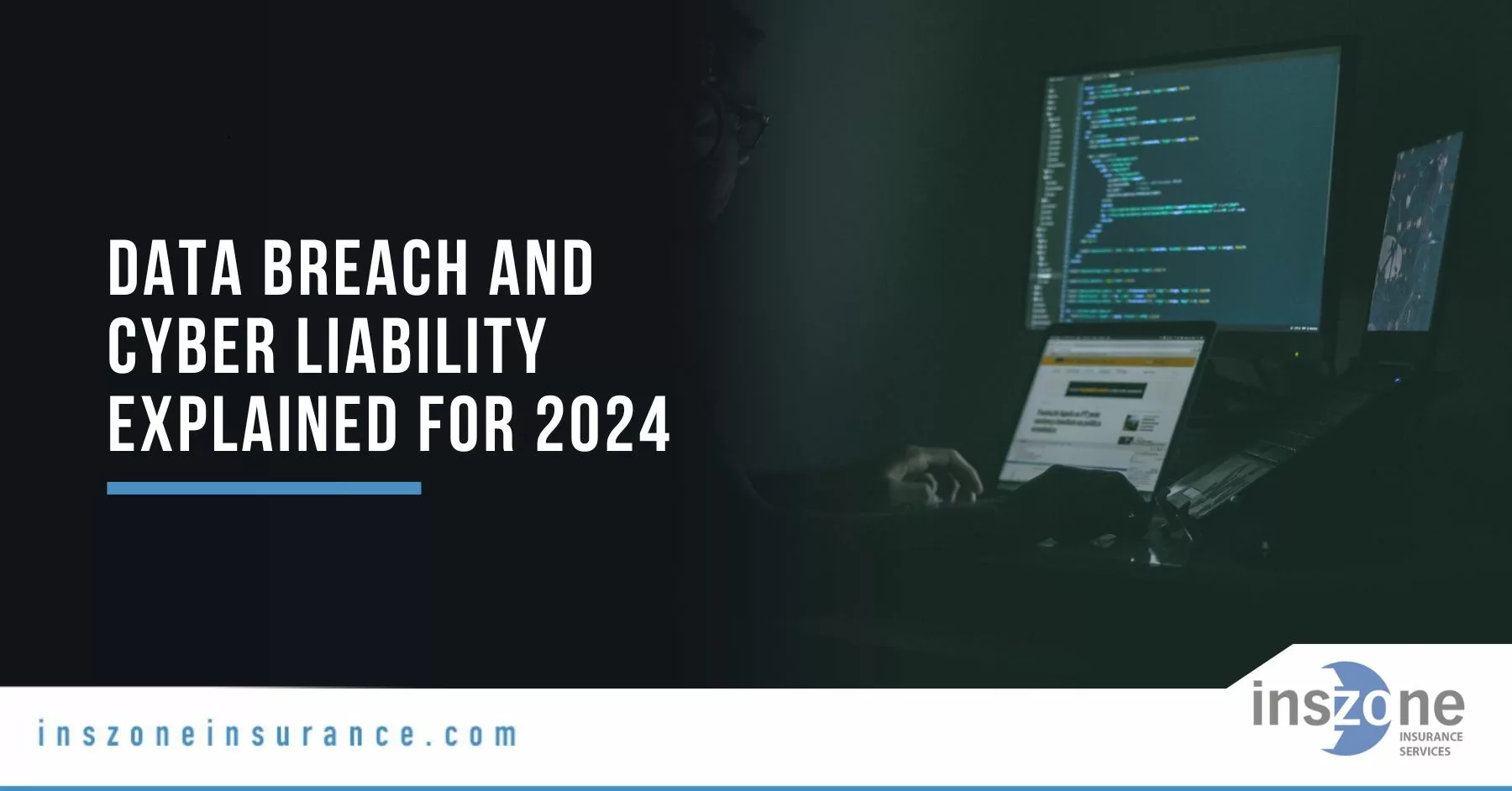What is Cyber Insurance?
Cyber insurance, often termed as cyber liability insurance, is a specialized form of coverage designed for the digital age. It acts as a safeguard, reducing financial risks associated with online operations and data management. This insurance is essential for businesses engaged in digital activities, providing a buffer against the ramifications of cyber incidents.
Key Features:
- Protection against financial losses from cyber events like hacking, data breaches, and online fraud.
- Covers both direct and indirect costs related to cyber incidents.
- Offers a peace of mind in the digital landscape where risks are continuously evolving.
How to Understand your Risk?
Understanding your cyber risk is crucial for implementing effective security measures and choosing the right insurance coverage.
Considerations:
- Do you store, own or have access to data?
- Type of data handled: Personal, financial, or sensitive business information.
- Data volume: Larger datasets increase the risk.
- Data access: Who has access and how it is managed.

Why is Cyber Insurance Important?
The significance of cyber insurance cannot be overstated in an era where digital threats are omnipresent. Data Breach and Cyber Liability Insurance are important because of:
- Financial Impact: Covers the high costs associated with data breaches.
- Business Continuity: Ensures businesses can operate post-incident.
- Legal Compliance: Assists in meeting legal obligations following a breach.
What Can Happen?
Various incidents can lead to a need for cyber insurance. These are a few relatable scenarios:
- Loss or theft of devices containing sensitive data.
- Internal threats such as employee theft of information.
- External threats like hacking or phishing attacks.
- System vulnerabilities leading to unauthorized access.
Types of Potential Cyberattacks
A cyberattack on your business could mean:
- Computer attacks. In this kind of cyberattack, your computer system is hacked and compromised.
- Cyber extortion. Thieves may demand ransom payments during an extortion threat to your company’s computer system.
- Data breaches. Breaches occur when critical information is stolen such as personal financial information.
What Type of Data is at Risk?
Understanding what data is at risk helps in tailoring cybersecurity measures and insurance coverage.
Vulnerable Data:
- Personal data: Names, addresses, social security numbers.
- Financial data: Credit card details, bank information.
- Business-sensitive information: Trade secrets, client details.
How Does Cyber Insurance or Cyber Liability Work?
Cyber insurance is designed to mitigate the aftermath of cyber incidents, offering both first-party and third-party coverages.
Coverage Aspects:
- First-party coverage: Directly pertains to the insured entity’s losses.
- Third-party coverage: Involves claims made by others affected by the incident.
Who Needs Cyber Insurance?
Virtually every modern business requires cyber insurance due to the omnipresence of digital data.
Ideal Candidates:
- Small and medium enterprises handling customer data.
- Healthcare providers with sensitive patient information.
- Financial institutions managing large volumes of personal financial data.
- Government and educational institutions.

What is Usually Covered by Cyber Liability Insurance?
Typically, policies cover expenses related to managing and resolving a cyber incident, including legal fees, public relations efforts, and forensic investigation costs. However, there may be exclusions or limitations in the coverage, such as losses due to unencrypted devices, inadequate security measures, employee misconduct, or insider threats. It’s important to double check this with your agent and according to your specific policy. This is a guide, not a description of your specific policy. Cyber insurance typically covers expenses related to managing and resolving a cyber incident, including:
- Legal fees and regulatory fines.
- Public relations efforts to manage reputational damage.
- Notification and credit monitoring services for affected individuals.
- Forensic investigation and data restoration costs.
- Extortion payments, such as ransomware demands.
However, there may be exclusions or limitations in the coverage, such as:
- Losses due to unencrypted devices or inadequate security measures.
- Losses resulting from employee misconduct or insider threats.
- Losses from intellectual property theft or trade secret infringement.
Once you understand the coverage limitations, businesses should be aware of the different types of cyber insurance available. The two main types of cyber insurance are first-party coverage, which covers the policyholder’s direct losses resulting from a cyber incident, and third-party coverage, which covers the policyholder’s liability for damages caused to others as a result of a cyber incident.
How to Choose a Cybersecurity Insurance Policy?
How Much Does a Cyber Liability Policy Cost?
When choosing a Policy you need to make sure to:
- Assess your specific risk profile.
- Compare coverage options from different providers.
- Consider the insurer’s reputation, knowledge and claim response history.
Cost Factors:
- Size and type of business.
- Nature and volume of data handled.
- Industry-specific risks.
How to Recover from a Breach
Post-breach recovery is critical in mitigating the impact and restoring normal operations.
Recovery Steps:
- Conduct a forensic analysis to understand the breach.
- Comply with legal requirements for data breach notification.
- Implement stronger security measures to prevent future incidents.
Remember that in 2024 cyber insurance is a non-negotiable element for businesses in the digital age. Understanding its intricacies, from the types of risks and coverage to the selection and recovery processes, is vital for any business aiming to safeguard its digital assets and maintain resilience in the face of ever-evolving cyber threats.

Cyber insurance is important with the development of machine learning and AI assisted tools:
- ML and AI systems can introduce new risks and vulnerabilities that may lead to data breaches, property damage, business interruption, or bodily harm.
- ML and AI systems can be tricked, evaded, or misled by malicious actors who may try to steal, corrupt, or manipulate them for their own purposes.
- ML and AI systems can fail unintentionally due to faulty assumptions, design flaws, or unexpected situations that may produce unsafe or undesirable outcomes.
- Cyber insurance can help cover the costs and liabilities associated with these potential failures and provide guidance and support for mitigating and preventing them.
ting strong security policies and procedures, investing in cybersecurity training, and staying informed about the latest cyber threats and trends. Additionally, career professionals should consider obtaining cyber insurance to protect themselves from potential financial losses resulting from a cyber incident.
Cyber Insurance is Getting Harder to Obtain
As cyber threats become more complex and pervasive, some insurance companies are becoming more selective in offering cyber insurance coverage, requiring businesses to demonstrate robust security practices before providing a policy.
Let Inszone Insurance Services help you protect your company and yourself from potential financial and reputational damage. Request a free quote.





